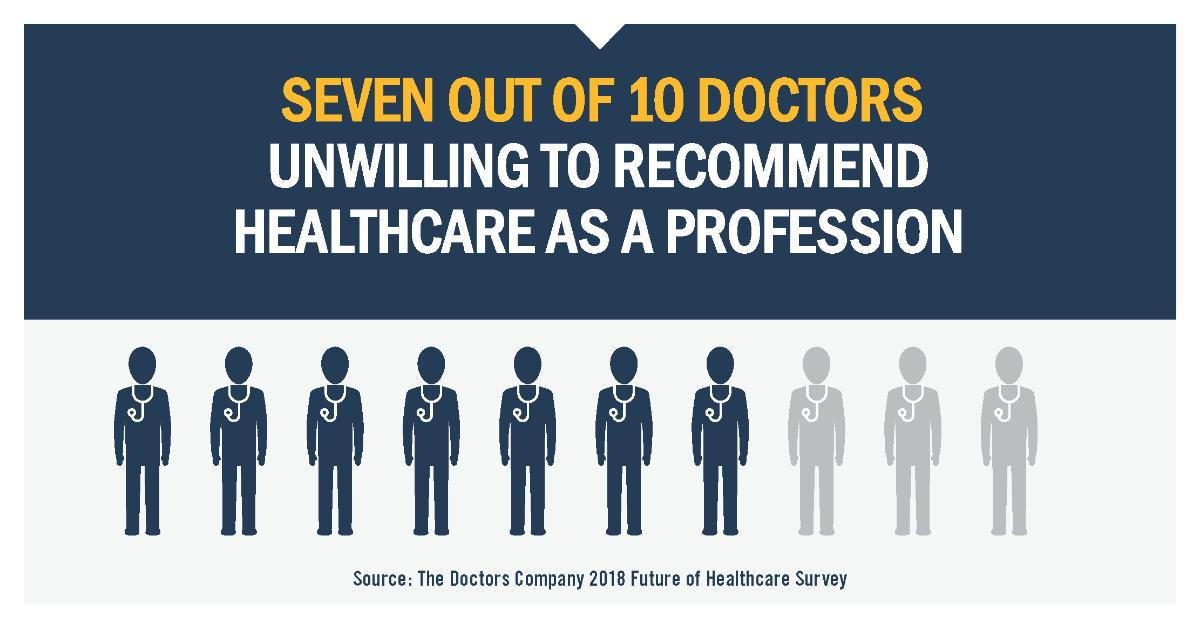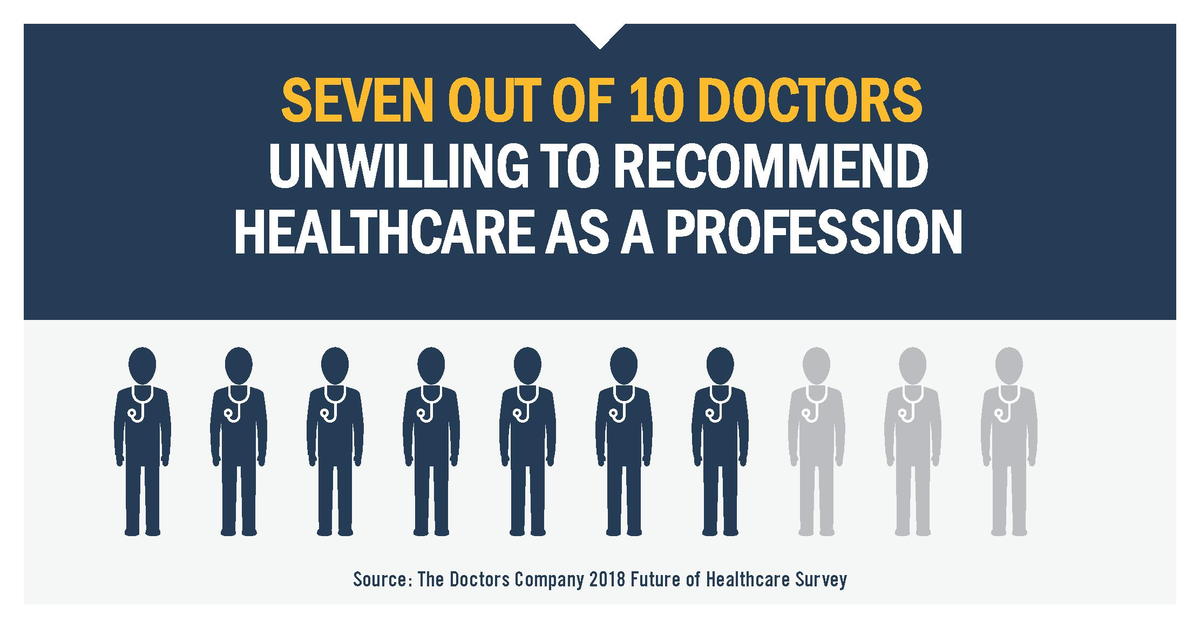
 Doctors are concerned about the quality of care they provide to patients—that is, after all, the reason they chose the profession. But doctors today report being so disappointed with the present state of medical practice, that 7 out of 10 say they cannot recommend the profession to their children or other family members.
Doctors are concerned about the quality of care they provide to patients—that is, after all, the reason they chose the profession. But doctors today report being so disappointed with the present state of medical practice, that 7 out of 10 say they cannot recommend the profession to their children or other family members.
That’s the message from the 2018 Future of Healthcare survey, featuring responses and comments from more than 3,400 doctors nationwide. Conducted by The Doctors Company, the nation’s largest doctor-owned medical malpractice insurer, the survey reveals a complicated picture about the attitudes of doctors towards the state of healthcare.
The survey results indicate that in the future, healthcare will likely be much different than what providers and patients are accustomed to today. The number of doctors may continue to decrease, with fewer entering the profession and many practicing physicians retiring in the next five years. Patients may no longer see a doctor for non-critical conditions, as advanced practice providers such as nurse practitioners and physician assistants will likely fill the gap. And while practice consolidation appears to have slowed, evolving technologies and reimbursement models are viewed as encumbrances to the most important reason doctors practice medicine: caring for patients.
Here are some of the most relevant findings:
- 54% believe current electronic health record (EHR) technology is having a negative impact on the doctor/patient relationship.
- 62% say they don’t plan to change practice models within the next five years.
- 54% contemplate retirement within five years due to changes in healthcare.
And doctors were clear in their comments. “If I had to start today, I would choose another field of endeavor,” said one. Another opined, “We love what we do, but…we need to restore the dignity back to the doctor-patient relationship.”
While many say they are disheartened with medicine, it gives us hope that the unique passion doctors possess for patient care remains. As one California surgeon noted: “There is no other life I would choose, regardless of compensation or regulation.”
Despite the cautionary notes these results strike for the future, they still give some reason for optimism. Younger doctors shared a more positive perspective of EHRs. Moreover, after a period of relative flux in practice models, doctors now anticipate that their practice settings will stabilize over the next five years. The vast majority say they will not change practice models in the near future. This structural solidification may give patients more reassurance and predictability when it comes to their healthcare experiences.
What can be done to reverse some of the disenchantment? Based on the responses to this survey, we need to think long-term. Doctor disenchantment may ultimately change the face of healthcare as we know it. As it stands today, by 2020 we will already reach a tipping point, with more primary care doctors retiring than graduating from primary care residencies across the US. From this alone, we can predict a reshaping of services, with physician assistants and nurse practitioners composing more of the family practice workforce.
The medical profession is emerging from a period of uncertainty. The use of EHRs is finally becoming familiar, if not popular. And though new business structures and pricing methods might not be second nature, the challenges are at least better understood. To help advance the practice of good medicine, surveys like the Future of Healthcare are instructive and vital. Doctors deserve a loud voice in the healthcare debate, so that quality care and the doctor-patient relationship are the cornerstone of every decision.
Bill Fleming is Chief Operating Officer of The Doctors Company.
